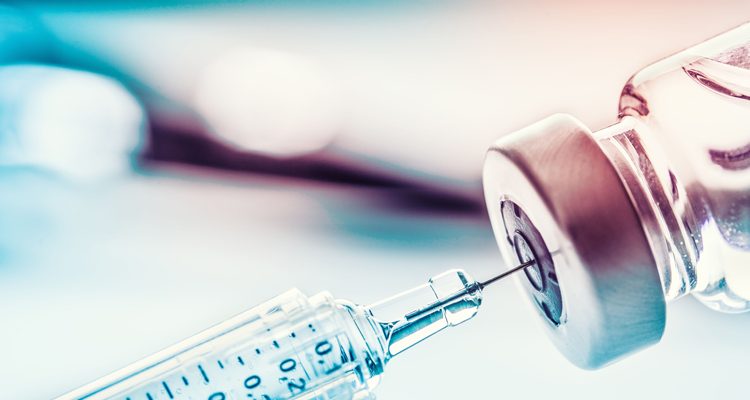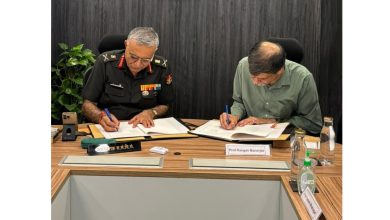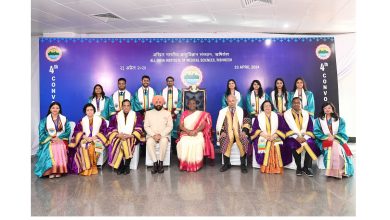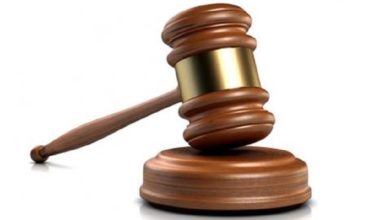AstraZeneca’s US trial data a confidence booster for COVID-19 shot

The drugmaker said that interim data from trials in Chile, Peru and the US have found the vaccine was 79 per cent effective in preventing symptomatic COVID-19
AstraZeneca’s COVID-19 vaccine performed better than expected in a major late-stage trial, paving the way for its potential emergency authorisation in the US and boosting confidence in the shot after setbacks in Europe.
The drugmaker said that interim data from trials in Chile, Peru and the US have found the vaccine was 79 per cent effective in preventing symptomatic COVID-19 and, crucially, posed no increased risk of blood clots.
AstraZeneca intends to request US emergency authorization for the vaccine, which was developed in conjunction with Oxford University, in the coming weeks. More than a dozen European countries, including Germany and France, halted the use of the vaccine earlier this month after reports linked it to a rare blood clotting disorder in a small number of people.
Germany and France resumed inoculations after the EU’s drug regulator said last week it was safe but an opinion poll showed Europeans remained sceptical about its safety.
Hailed as a milestone in the fight against the COVID-19 pandemic when it emerged as a vaccine contender last year, the AstraZeneca shot has been dogged by doubts over its efficacy, dosing regimen and possible side effects. The shot has also been at the centre of a growing conflict between Brussels and London over so-called vaccine nationalism after a string of supply setbacks in Europe.
The latest trial results, based on 141 infections among 32,449 participants, have yet to be reviewed by independent researchers but they help address some concerns, analysts said.
US infectious diseases expert Anthony Fauci said the US trial found no indication at all of the rare blood clots, although there were only about 30,000 people in the study.
“It is clear this vaccine has very good efficacy (remember that 60 per cent was, before any trials being started, regarded as a good target), and that this efficacy does not show a notable decline at older ages,” Stephen Evans, professor of pharmacoepidemiology at the London School of Hygiene & Tropical Medicine, said.
The trial was almost three times larger than an earlier British study. For every two people given the vaccine, one person received a placebo, whereas in the British trial both groups were about the same size.
About 20 per cent of the volunteers were aged 65 and above in the latest trial while only 5.7 per cent were in the previous study, which had made some European countries initially hesitant about using the AstraZeneca shot on older people.
“Seeing this data now I hope gives others increased confidence that this is a very effective and safe vaccine,” Mene Pangalos, an AstraZeneca executive vice-president, told a news briefing.
US trials of rival vaccines from Pfizer and Moderna, which are being deployed in the US, have shown efficacy rates of about 95 per cent.
But the AstraZeneca vaccine, which is already widely used outside the US, is seen as crucial in tackling the spread of COVID-19 across the globe because it is easier and cheaper to transport than rival shots.
Analysts also noted AstraZeneca’s achievement of producing strong trial data against a backdrop of more infectious variants spreading in the US and other countries.
Pangalos said this was very encouraging as there were undoubtedly variants of concern in circulation during the study.
The AstraZeneca shot has been granted conditional marketing or emergency use authorisation in more than 70 countries.
But it has yet to be approved in the US, where President Joe Biden is stepping up the federal response to the pandemic by expanding testing, ramping up vaccinations and boosting production.
AstraZeneca forecast it would deliver 50 million doses to the US within the first month of authorisation and 15 to 20 million does per month thereafter, drawing entirely on production sites in the country.
Preparing the data for submission to US regulators would take a few weeks, AstraZeneca said, adding that the minimum duration of safety data required by the US Food and Drug Administration had been reached.
Many Asia-Pacific countries are relying heavily on the AstraZeneca vaccine to end the pandemic. It is already being used in inoculation programmes in Australia, South Korea, the Philippines, Vietnam, Thailand, and India.
Some states in India, which has the highest coronavirus caseload after the US and Brazil, want to accelerate their vaccination drives.
As demand for vaccines rises in the country, the Serum Institute of India, the world’s biggest vaccine manufacturer, has delayed further shipments of the AstraZeneca shot to Brazil, Britain, Morocco and Saudi Arabia.




